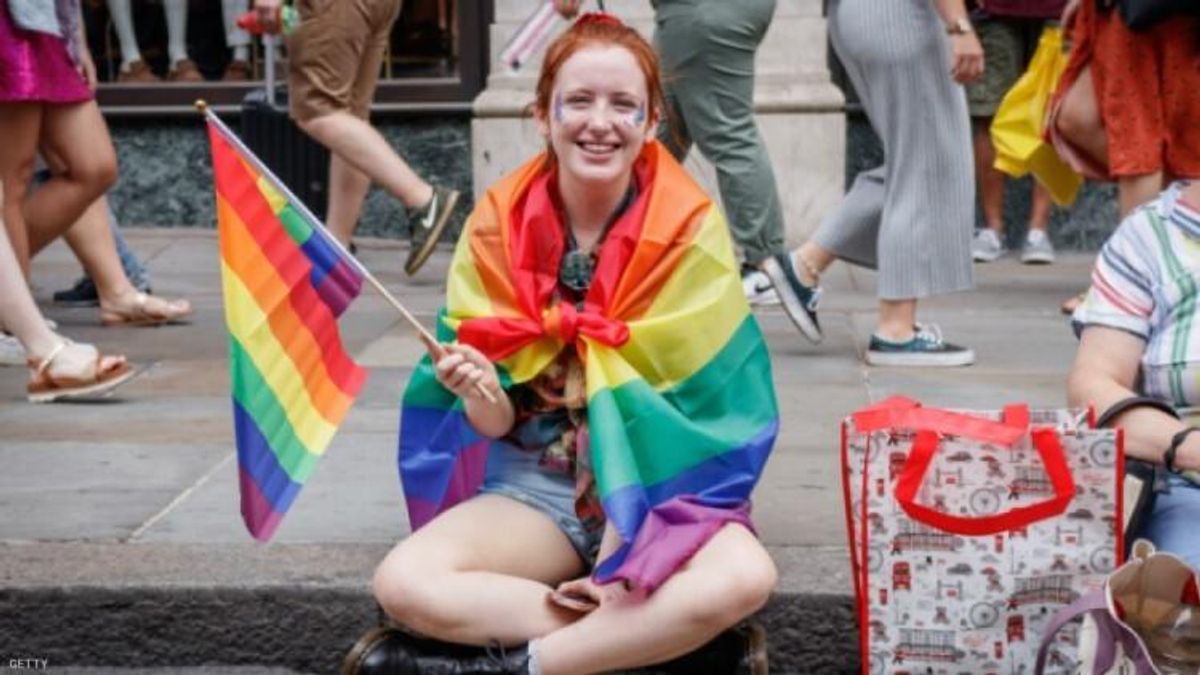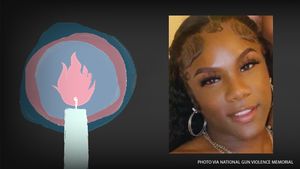A recent survey has found Gen Z folks are far more likely to be LGBTQ+ than their older counterparts, and also found Americans' views overall reflect a surprisingly progressive outlook on LGBTQ+ issues like marriage equality.
![]()
The internet survey from global data firm Ipsosqueried more than 19,000 people in 27 countries across the globe who had reached the legal age of consent in their country but were 74 years old or younger. The results found that respondents in Generation Z (those born in 1997 or later) were twice as likely to identify as non-straight than their over-40 counterparts, and were four times more likely to identify as trans, nonbinary, genderfluid, or something other than a traditional binary identity.
"On average, across the 27 countries surveyed, those who identify as transgender, non-binary, non-conforming, genderfluid, or other than male or female make up 4% of Gen Z compared to 1% among all adults," the report read. "Younger adults are also significantly more likely to identify differently from heterosexual and to say they are equally attracted to both sexes."
The survey found that 4 percent of Gen Z respondents identify as transgender, non-binary, non-conforming, genderfluid, or "in another way" while 68 percent identify as straight, 4 percent identify as gay, lesbian, or homosexual, and 9 percent identify as bisexual.
In comparison, less than 1 percent of Baby Boomers (born 1946 to 1964) identify as something other than binary, 87 percent identify as straight, 1 percent as gay, 2 percent as bisexual, and 1 percent in another way.
Despite the differences between Baby Boomers and Gen Z, the survey overall found widespread support in the U.S. for marriage equality, (75 percent agree, 15 percent oppose) child adoption for LGBTQ+ families (72 percent agree, 22 percent oppose), and laws banning LGBTQ+ discrimination (60 percent agree, 21 percent oppose). Opinions on trans athletes competing in sports in accordance with their true gender depends greatly on party affiliation. A plurality of Democrats support trans athletes (42 percent support, 11 percent oppose) while an overwhelming majority of Republicans oppose (75 percent oppose, 11 percent support).
Additionally, 57 percent of U.S. respondents said they have a relative, friend, or coworker who is gay or lesbian, 30 percent know someone who is bisexual, 14 percent know someone who is transgender, and 14 percent know someone who is non-binary, genderfluid, or non-conforming.
![]()
The survey weighted responses to reflect a more accurate sample of individual countries. Accuracy ranges from +/- 3.5 percent for countries with 1000 respondents (e.g. United States, Australia, Germany) and +/- 4.5 percent for countries with 500 respondents (e.g. Argentina, Mexico, Russia). The full survey can be found at the Ipsos website, here!
RELATED | Nearly Half of Queer Millennials Are Still in the Closet


























































































